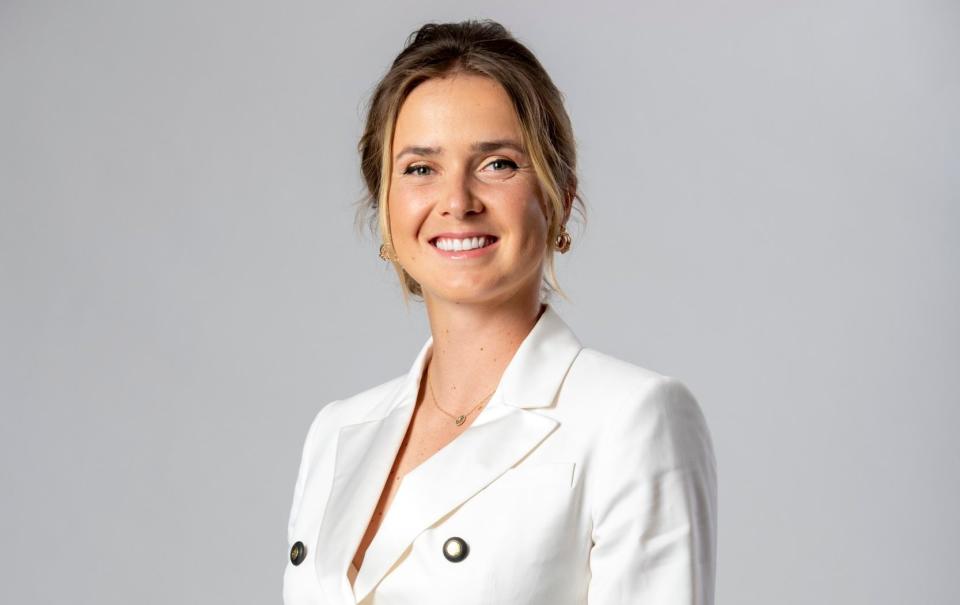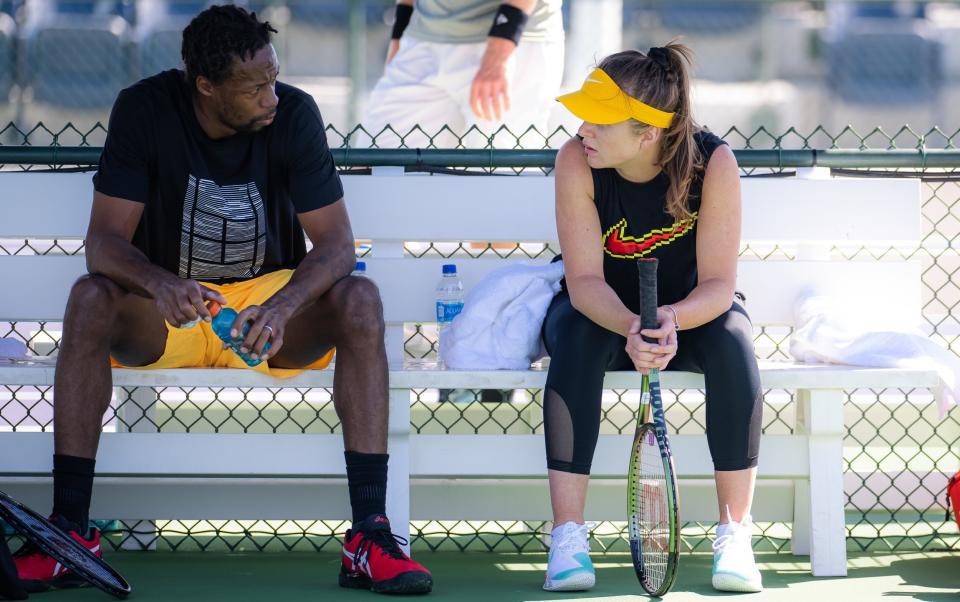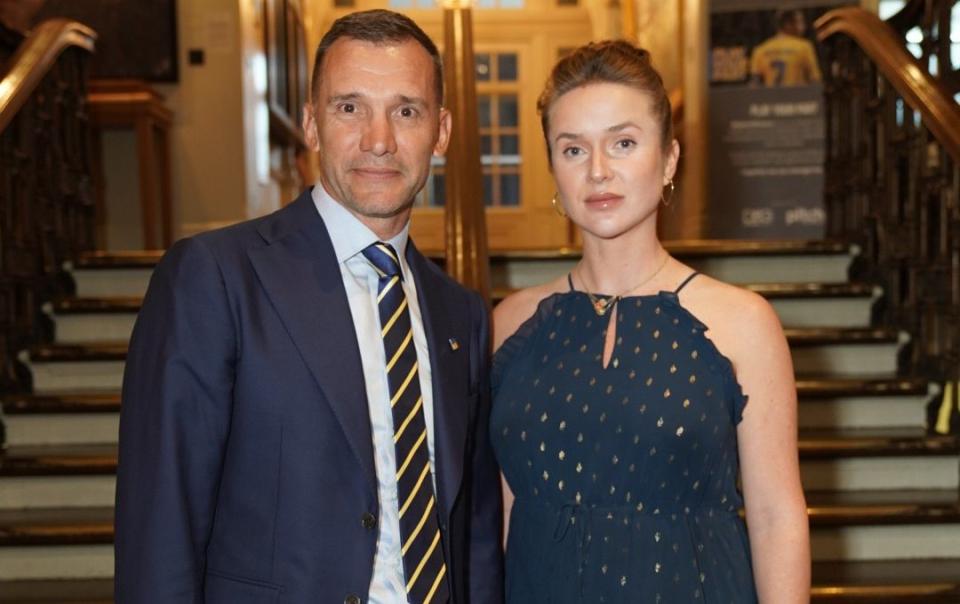Elina Svitolina exclusive: 'The Russian invasion changed everything for me'

It was meant to be one of the happiest times of her life. Elina Svitolina had just discovered she was pregnant with her first child but the joy she shared with her partner, and fellow tennis player, Gaël Monfils was painfully short-lived: days later, her native Ukraine was invaded by Vladimir Putin's Russian forces. And suddenly, it did not seem like the time to celebrate.
It is why, even now, a message of congratulations for her impending arrival provokes something of a grimace. “Thank you," she says. "It’s been a mixture of feelings. It was really tough for me to really enjoy it."
While most expectant mothers would be basking in their joy, Svitolina made it her mission to become one of the most outspoken critics of the invasion from the world of sport.
She spent hours on calls with journalists and speaking on television broadcasts, relentlessly imploring ally states and the general public to help her homeland any way they could. Through it all, she continued to play, diverging from the tennis norm to wear the blue and yellow of the Ukraine flag and even reaching the quarter-finals of the Monterrey Open shortly after the war began.
But in May she finally announced to the world that she and Monfils were expecting a baby girl in October, and decided to set down her racket – for now, at least. Even if she was not formally taking maternity leave, however, she says she could not have carried on playing.

"When the invasion started, it was extremely tough mentally to compete and to have my family in Ukraine, it was extremely tough to deal with," she says. “My priorities and perspective really changed a lot. For me, I felt not in the right place when I was playing on the court. I was worried about my family. It was really tough to focus 100 per cent on my job, that's why I wanted to share my view. But right now I’m really happy I could take my time, refocus myself, find where I'm needed."
Though her parents left Ukraine, she still has family and friends dotted around the country – some even returned in order to volunteer – and she felt an urgent need to be part of the solution, too.
Since stepping away from the tour, the former world No3 has been splitting her time between various bases in Europe, but always with a view to how to raise funds for her home country. She is an ambassador for fundraising platform UNITED24, a role which recently led her to have discussions with Volodymyr Zelensky, the Ukraine president. Earlier this month she was at the Ukraine Recovery Conference in Switzerland to take part in talks.
On Saturday she is hosting a charity exhibition event in Krakow, where she will be in the umpire's chair while world No1 Iga Swiatek and former top-ranked Polish player Agnieszka Radwanska face off, with Ukrainian tennis player Sergiy Stakhovsky and former footballer Andriy Shevchenko making cameos appearances. All proceeds will go to children and teenagers affected by the Ukraine invasion, which has so far claimed at least 10,000 lives.

"I want people to know what is happening – that the war continues – because I feel like it’s faded away a little bit from the news," she says. "It’s very important to do everything in my power."
But while her attention has veered away from tennis, little did she know that her sport would become embroiled in its most politically-charged debate in recent memory over the very war that turned her life upside down.
Wimbledon's decision to ban Russian and Belarusian players from the tournament this year was divisive and provoked the WTA and ATP to remove its ranking points.
Svitolina, however, is insistent Wimbledon were right to act. "I do not agree with the statement the WTA and ATP made," she says. "I think they should do more in regards to Ukrainian players, towards Ukraine. All the Ukrainians, we’ve been having roundtables with the WTA, ITF, grand slams, explaining the situation, what help we need. But they chose to go their separate ways. I was sad to find out they took their position. But I have a lot of respect and want to thank Wimbledon for making players feel supported as well as Ukraine."
For Svitolina, the controversy exposed the lack of empathy she experienced in the locker room prior to her maternity leave. There had been suggestions ahead of the tournament that at one stage Russian and Belarusian players may have been allowed to compete, if they were willing to denounce the Russian invasion and Putin's regime. While the risk of doing so has been cited by geopolitical experts, Svitolina has little sympathy for their silence.
"They made their choice," she says. "Tennis players are pretty much living outside of Russia, training in Europe and the States. This is their decision. A lot of players didn't even come to us to ask how our family are doing, how is the situation in Ukraine. That’s why of course it created tension."
Since Wimbledon, two of Russia's top-ranked players have spoken candidly about the situation. Andrey Rublev – who went viral when he wrote "No War Please" on a camera lens ahead of the invasion – and compatriot Daria Kasatkina even discussed the possibility of changing their citizenship in order to compete. Kasatkina also came out as gay, criticising the treatment of LGBTQ+ people in Russia. The repercussions are already being felt, with both players' PR executive Sofya Tartakova dropped from her presenting job on Russian state television for bashing the criticism Rublev and Kasatkina had received on the network.
It may be a sign of Russian tennis players pushing back, and potentially could heal some locker-room relationships, but for Svitolina this is a mere sideshow to the real issue at hand.
"Our Ukrainian people are dying back home, we lost our homes, we lost our training bases, our families are all in danger. We are not in an equal position here.
"Sport has a great responsibility with a lot of media attention, it helps people to understand what is really going on. This is my mission right now."

 Yahoo Sport
Yahoo Sport 




































